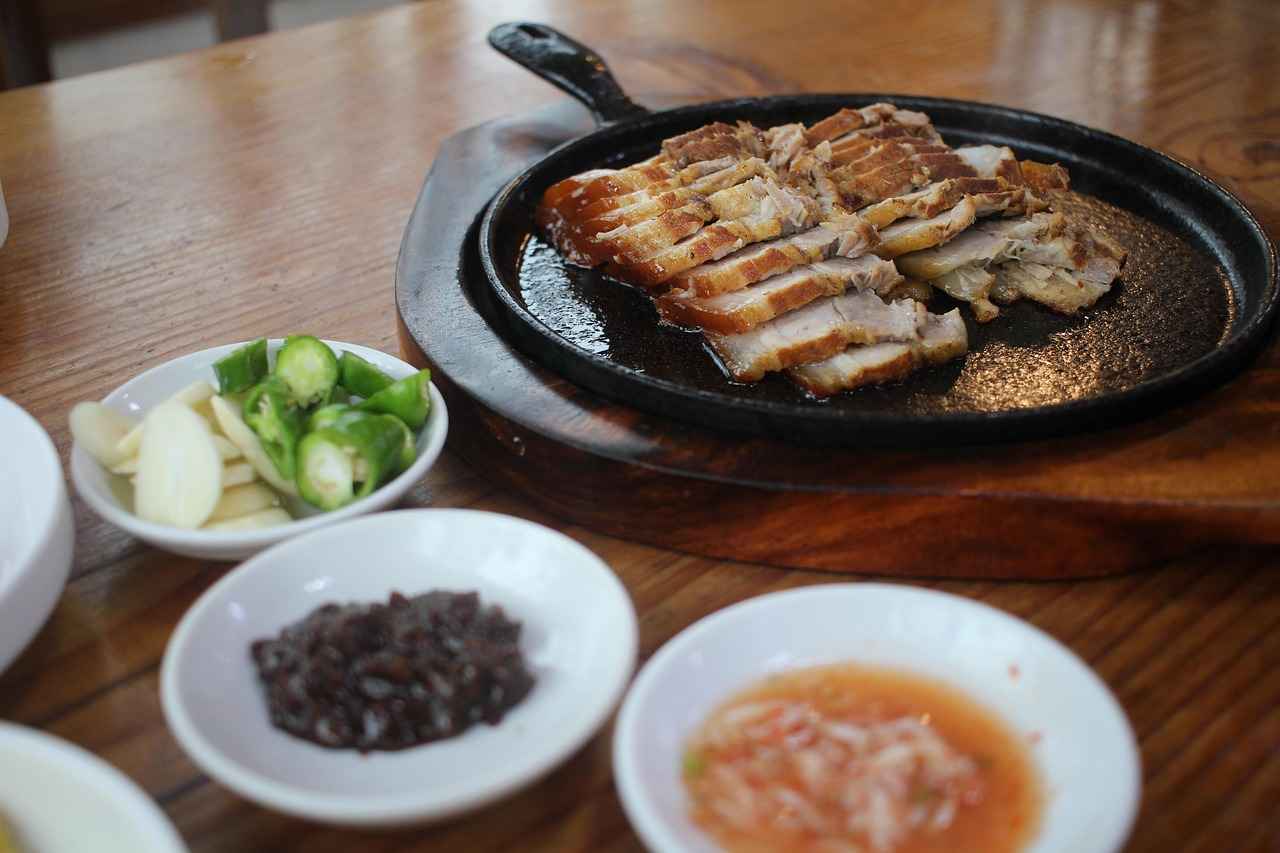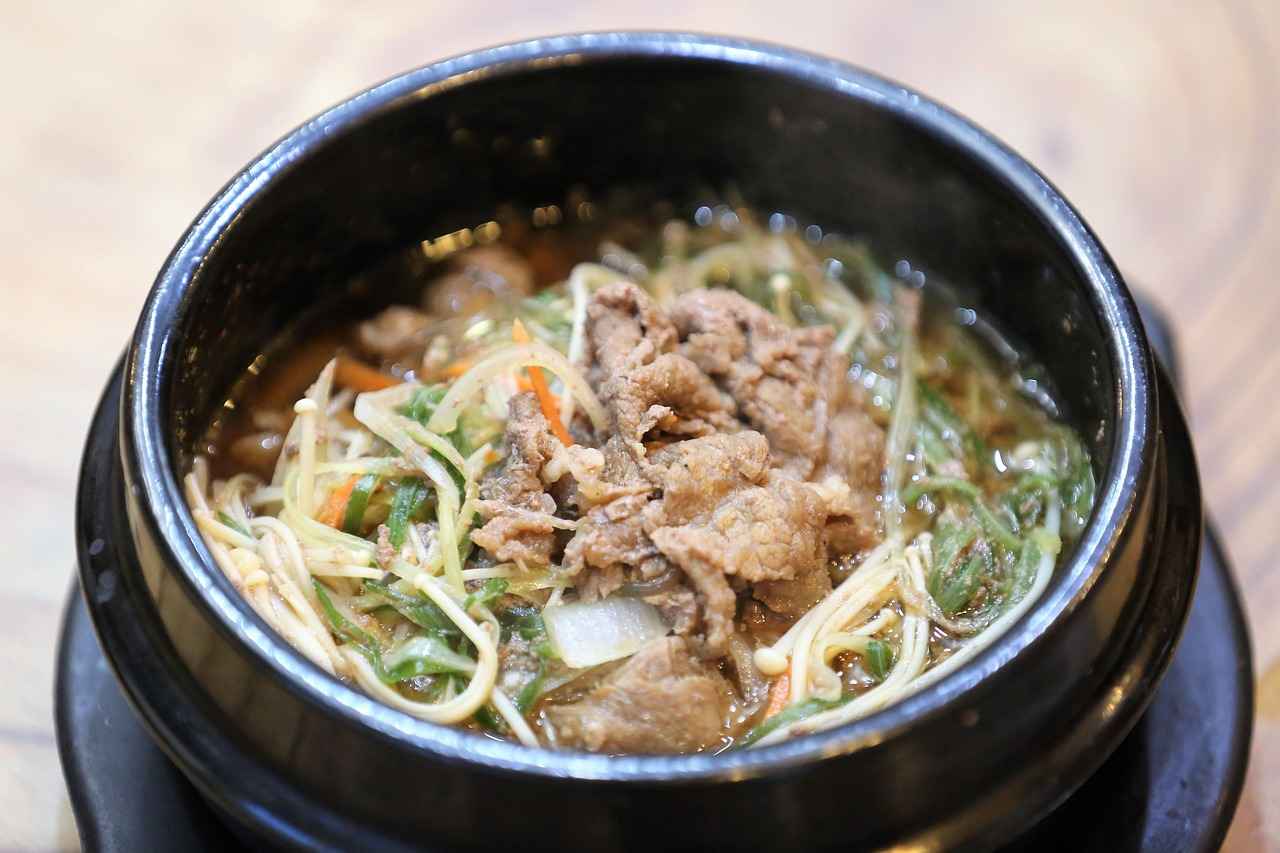This article delves into the remarkable benefits of Korean ginseng, a powerful herb known for its ability to alleviate stress. With its active components, health benefits, and practical applications, Korean ginseng can significantly enhance your well-being.
What is Korean Ginseng?
Korean ginseng, scientifically known as Panax ginseng, is a revered medicinal herb celebrated for its adaptogenic properties. These properties assist the body in managing stress while boosting overall vitality.
How Does Korean Ginseng Work?
The efficacy of Korean ginseng lies in its active compounds, particularly ginsenosides. These compounds are instrumental in modulating the body’s stress response and promoting a state of relaxation.
Understanding Ginsenosides
Ginsenosides are the primary bioactive compounds found in Korean ginseng. They contribute to its adaptogenic effects by influencing neurotransmitter activity and lowering cortisol levels in the body, which is crucial for stress management.
Research on Stress Reduction
Numerous studies have illustrated the effectiveness of Korean ginseng in reducing stress, positioning it as a natural alternative to conventional stress management techniques. This research highlights its potential to support mental health and emotional well-being.
Health Benefits of Korean Ginseng
- Boosting Immune Function: Korean ginseng enhances immune responses, aiding the body in warding off infections, especially during stressful times.
- Improving Cognitive Function: Regular intake of Korean ginseng may improve cognitive abilities, such as memory and focus, which can be negatively affected by stress.
How to Incorporate Korean Ginseng into Your Routine
- Korean Ginseng Tea: Brewing ginseng tea is a simple and enjoyable method to experience its calming effects.
- Supplement Options: Available in various forms, including capsules and powders, Korean ginseng supplements provide convenient ways to manage stress.
Potential Side Effects and Precautions
While generally safe, some individuals may experience side effects such as insomnia or digestive issues. It’s advisable to consult a healthcare professional, especially for pregnant women or those with specific health conditions.
Conclusion: Embracing Korean Ginseng for Stress Management
Korean ginseng presents a natural, holistic approach to stress reduction. By incorporating it thoughtfully into daily life, individuals can harness its extensive health benefits and improve overall well-being.

What is Korean Ginseng?
Korean ginseng, scientifically known as Panax ginseng, is a highly esteemed medicinal herb that has been utilized for centuries in traditional medicine, particularly in East Asia. This remarkable plant is celebrated for its adaptogenic properties, which enable the body to effectively manage stress and elevate overall vitality. In this article, we will delve into the characteristics, benefits, and applications of Korean ginseng, providing a comprehensive understanding of this powerful herb.
Korean ginseng thrives in the mountainous regions of Korea and is distinguished by its unique root structure, which resembles the shape of a human body. This characteristic has led to its nickname, “man-root.” The plant is rich in bioactive compounds, primarily ginsenosides, which are responsible for its numerous health benefits. These compounds interact with the body’s physiological systems, promoting balance and resilience.
- Stress Relief: Korean ginseng is renowned for its ability to reduce stress and anxiety levels. By modulating the body’s stress response, it helps individuals cope with daily pressures.
- Enhanced Energy: Regular consumption of Korean ginseng can lead to increased energy levels, making it an ideal supplement for those feeling fatigued or lethargic.
- Improved Cognitive Function: Studies suggest that Korean ginseng may enhance memory and focus, particularly beneficial for students and professionals alike.
- Boosted Immune System: This herb is known to strengthen the immune system, helping the body fight off infections and illnesses.
Incorporating Korean ginseng into your daily routine can be achieved through various methods:
- Korean Ginseng Tea: Brewing a cup of ginseng tea is a soothing way to enjoy its benefits.
- Supplements: Available in capsule or powder form, ginseng supplements offer a convenient option for those on the go.
- Culinary Uses: Adding ginseng to soups or stir-fries can enhance both flavor and health benefits.
In conclusion, Korean ginseng is a versatile herb with a myriad of health benefits, particularly in stress management and vitality enhancement. By understanding its properties and incorporating it into daily life, individuals can harness its potential to improve their overall well-being. As always, it is advisable to consult with a healthcare professional before starting any new supplement regimen.

How Does Korean Ginseng Work?
Korean ginseng, scientifically known as Panax ginseng, is celebrated for its remarkable ability to help the body manage stress. This adaptogenic herb contains various active compounds, with ginsenosides being the most prominent. These compounds are pivotal in modulating the body’s physiological response to stress, contributing to a sense of calm and relaxation.
The mechanism by which Korean ginseng operates is multifaceted. Ginsenosides interact with the body’s neuroendocrine system, which is responsible for regulating stress hormones like cortisol. By influencing neurotransmitter activity, these compounds help to stabilize mood and enhance emotional resilience. This interaction can lead to a reduction in anxiety and an overall improvement in mental well-being.
Research has shown that ginsenosides can lower cortisol levels, which is crucial as elevated cortisol is often associated with chronic stress. Moreover, these compounds also promote the release of serotonin and dopamine, neurotransmitters that play essential roles in mood regulation. This dual action not only helps in reducing stress but also enhances cognitive functions such as memory and focus.
Furthermore, different types of ginsenosides exhibit specific properties. For instance, some ginsenosides are known to enhance mood, while others may be more effective in reducing stress levels. Understanding these variations can help individuals choose the right form of Korean ginseng for their specific needs.
In conclusion, the active compounds found in Korean ginseng, particularly ginsenosides, are integral to its stress-reducing capabilities. By modulating the body’s stress response and promoting relaxation, Korean ginseng serves as a powerful ally in the quest for improved mental health and well-being.
Understanding Ginsenosides
Ginsenosides are the key bioactive components found in Korean ginseng, scientifically known as Panax ginseng. These compounds are primarily responsible for the herb’s renowned adaptogenic properties, which help the body manage stress and restore balance. The significance of ginsenosides lies in their ability to interact with various physiological systems, particularly the nervous and endocrine systems.
Research indicates that ginsenosides can influence neurotransmitter activity, which plays a crucial role in mood regulation and cognitive function. By modulating neurotransmitter levels, ginsenosides help alleviate symptoms of anxiety and depression, making Korean ginseng a valuable natural remedy for those facing stress-related challenges.
Moreover, ginsenosides are known to reduce cortisol levels in the body. Cortisol, often referred to as the “stress hormone,” is released in response to stress and can have detrimental effects on health when present in high levels over prolonged periods. By lowering cortisol, ginsenosides contribute to a more balanced hormonal environment, promoting relaxation and overall well-being.
| Type of Ginsenoside | Primary Effects |
|---|---|
| Rb1 | Enhances cognitive function and mood |
| Rg1 | Boosts energy and physical performance |
| Rc | Supports immune function and reduces fatigue |
In addition to their direct effects on neurotransmitters and cortisol, ginsenosides exhibit neuroprotective properties. They help shield brain cells from damage caused by oxidative stress and inflammation, which are often exacerbated during stressful situations. This neuroprotection is vital for maintaining cognitive health and enhancing mental resilience.
In conclusion, ginsenosides are pivotal in the stress-reducing effects of Korean ginseng. Their multifaceted mechanisms of action not only promote relaxation but also support cognitive function and overall health. Incorporating Korean ginseng into one’s routine can thus serve as a natural approach to managing stress and enhancing well-being.
Types of Ginsenosides
Ginsenosides are the key bioactive compounds found in Korean ginseng, and they play a crucial role in the herb’s therapeutic effects. Each type of ginsenoside has distinct properties and benefits, making them valuable for various health applications. Below, we explore the main types of ginsenosides and their unique functions:
- Rb1: Known for its calming effects, Rb1 helps reduce anxiety and stress levels. It promotes relaxation and is often used to enhance mood.
- Rb2: This ginsenoside is linked to improved cognitive function. It may enhance memory and concentration, making it beneficial for those experiencing mental fatigue.
- Rg1: Rg1 is known for its stimulating properties, which can increase energy levels and improve physical performance. It also has neuroprotective effects, supporting brain health.
- Rg3: This compound is recognized for its potential in reducing inflammation and boosting the immune system. It may also have anti-cancer properties, making it a subject of ongoing research.
- Re: Ginsenoside Re is associated with enhancing mood and emotional well-being. It may help alleviate symptoms of depression and anxiety, contributing to overall mental health.
The diverse properties of these ginsenosides highlight the versatility of Korean ginseng as a natural remedy. Depending on individual needs, different types of ginsenosides can be targeted for specific health benefits, such as stress reduction or cognitive enhancement.
Incorporating Korean ginseng into your daily routine can provide a range of benefits, depending on the type of ginsenosides consumed. Whether through supplements, teas, or culinary uses, understanding these compounds allows for a tailored approach to health and well-being.
Conclusion: Understanding the various types of ginsenosides and their unique properties empowers individuals to make informed choices regarding the use of Korean ginseng. By selecting the appropriate ginsenosides, one can effectively target specific health concerns, such as stress and cognitive function, ultimately enhancing overall quality of life.
Mechanism of Action
Korean ginseng, particularly its active compounds known as ginsenosides, plays a pivotal role in the body’s ability to manage stress effectively. These bioactive compounds interact with various receptors in the brain, leading to a cascade of neuroprotective benefits that can significantly enhance mental resilience during challenging times.
One of the primary mechanisms by which ginsenosides exert their effects is through the modulation of neurotransmitter systems. They influence the release and uptake of key neurotransmitters such as serotonin and dopamine, which are crucial for mood regulation. By promoting a healthier balance of these neurotransmitters, ginsenosides can help alleviate feelings of anxiety and depression, creating a more stable emotional state.
Furthermore, ginsenosides have been shown to reduce levels of cortisol, the body’s primary stress hormone. Elevated cortisol levels can lead to a range of negative health outcomes, including impaired cognitive function and weakened immune response. By keeping cortisol levels in check, ginsenosides contribute to both neuroprotection and overall well-being, allowing individuals to better cope with stressors.
Additionally, ginsenosides enhance blood flow to the brain, which is essential for optimal cognitive function. Improved circulation ensures that the brain receives adequate oxygen and nutrients, thereby supporting processes such as memory and focus. This is particularly beneficial during periods of stress, where cognitive clarity can often diminish.
In summary, the mechanism of action of ginsenosides is multifaceted, involving neurotransmitter modulation, cortisol regulation, and enhanced cerebral circulation. These interactions not only promote neuroprotection but also foster a balanced hormonal response, making Korean ginseng a powerful ally in stress management.
Research on Stress Reduction
In recent years, the exploration of natural remedies for stress management has gained significant traction. Among these, Korean ginseng has emerged as a promising candidate, supported by numerous scientific studies demonstrating its efficacy in alleviating stress. This article delves into the mechanisms through which Korean ginseng operates, its active components, and the implications of its use in stress reduction.
Understanding the Science Behind Korean Ginseng
Korean ginseng, or Panax ginseng, is celebrated for its adaptogenic properties. These properties enable the herb to help the body adapt to stressors and maintain balance. The primary bioactive compounds in Korean ginseng, known as ginsenosides, play a pivotal role in modulating the body’s response to stress. Research indicates that these compounds can significantly impact the levels of cortisol, the hormone primarily responsible for stress responses.
Key Research Findings
- A study published in the Journal of Ethnopharmacology found that participants who consumed Korean ginseng experienced a notable reduction in stress levels compared to those who did not.
- Another research article highlighted that ginsenosides could enhance the production of serotonin and dopamine, neurotransmitters that play crucial roles in mood regulation.
- Clinical trials have shown that regular consumption of Korean ginseng can lead to improved mental clarity and focus, further counteracting the effects of stress.
Practical Applications of Korean Ginseng
Incorporating Korean ginseng into daily routines can be straightforward. Options include:
- Korean Ginseng Tea: A calming beverage that can be enjoyed throughout the day.
- Supplements: Available in capsules or powders for those seeking convenience.
Conclusion
The body of research surrounding Korean ginseng underscores its potential as a natural alternative for managing stress. With its unique ability to balance the body’s hormonal responses and enhance mood, Korean ginseng stands out as a valuable addition to any stress management toolkit. For those looking to explore holistic approaches to well-being, Korean ginseng offers a scientifically supported solution.

Health Benefits of Korean Ginseng
Korean ginseng, scientifically known as Panax ginseng, is celebrated not only for its remarkable stress-reducing properties but also for its broad range of health benefits. This powerful herb has been utilized for centuries in traditional medicine, and modern research continues to unveil its potential in enhancing overall well-being.
Beyond mere stress alleviation, Korean ginseng is a versatile herbal remedy that supports various aspects of health. Here are some key benefits:
- Improved Mental Clarity: Regular consumption of Korean ginseng can significantly enhance cognitive functions, such as memory and concentration. This is particularly beneficial for individuals facing high stress, as stress often impairs mental clarity.
- Enhanced Immune Function: Korean ginseng is known to bolster the immune system, helping the body combat infections and diseases. Its adaptogenic properties assist in maintaining immune health, especially during stressful times when the body is more susceptible to illness.
- Increased Energy Levels: Many users report a noticeable boost in energy and stamina after incorporating Korean ginseng into their daily routine. This increase in vitality can improve productivity and overall quality of life.
- Regulation of Blood Sugar: Some studies suggest that Korean ginseng may help regulate blood sugar levels, making it a valuable addition for those managing diabetes or insulin sensitivity.
- Anti-Inflammatory Properties: The herb contains compounds that may reduce inflammation in the body, potentially alleviating symptoms of various chronic conditions.
Integrating Korean ginseng into your routine can be simple and enjoyable. Here are some practical suggestions:
- Korean Ginseng Tea: Brew a soothing cup of ginseng tea to experience its calming effects, making it a perfect addition to your morning or evening rituals.
- Supplements: Available in various forms such as capsules, powders, and extracts, supplements offer a convenient way to enjoy the benefits of Korean ginseng without altering your diet significantly.
In summary, Korean ginseng is a powerful herbal remedy that extends beyond just reducing stress. Its numerous health benefits, including improved mental clarity, enhanced immune function, and increased energy levels, make it a valuable addition to anyone’s health regimen. By incorporating Korean ginseng thoughtfully into your daily life, you can harness its potential to enhance your overall well-being.
Boosting Immune Function
is one of the most significant benefits of Korean ginseng, also known as Panax ginseng. This powerful herb has been utilized in traditional medicine for centuries, particularly in East Asia, for its remarkable properties that enhance the body’s defense mechanisms. In this section, we will explore how Korean ginseng bolsters immune responses, its active components, and practical ways to incorporate it into your health regimen.
Research indicates that Korean ginseng can significantly improve the body’s ability to fend off infections and illnesses. Its active compounds, especially ginsenosides, play a pivotal role in modulating immune function. These compounds stimulate the production of immune cells, including T-cells and natural killer cells, which are essential for identifying and destroying pathogens.
| Active Components | Health Benefits |
|---|---|
| Ginsenosides | Enhance immune cell production |
| Polysaccharides | Boost overall immunity |
| Vitamins and Minerals | Support metabolic functions |
Furthermore, Korean ginseng is particularly beneficial during stressful periods. Stress can weaken the immune system, making individuals more susceptible to infections. By incorporating Korean ginseng into your routine, you can help mitigate these effects and maintain a robust immune response. Regular consumption can lead to improved vitality and resilience, allowing your body to combat stressors more effectively.
- Tea: Brew Korean ginseng tea for a soothing beverage that supports immune health.
- Supplements: Choose high-quality ginseng supplements for convenient intake.
- Culinary Uses: Add ginseng powder to smoothies or soups for an extra health boost.
In conclusion, integrating Korean ginseng into your daily routine can significantly enhance your immune function, providing a natural and effective way to protect against illnesses, especially during challenging times. By harnessing its powerful properties, you can promote better health and well-being.
Improving Cognitive Function
Korean ginseng, scientifically known as Panax ginseng, has garnered attention for its potential to enhance cognitive functions, particularly in stressful situations. Research has shown that regular consumption of this adaptogenic herb can lead to significant improvements in memory and focus. These cognitive abilities are often compromised when an individual is under stress.
One of the primary reasons for this enhancement is the presence of ginsenosides, the active compounds in Korean ginseng. These compounds are believed to influence neurotransmitter activity, which plays a crucial role in cognitive processes. By modulating the levels of neurotransmitters like dopamine and serotonin, ginsenosides can help improve mood and mental clarity, making it easier to concentrate and retain information.
| Benefits of Korean Ginseng on Cognitive Function | Mechanism of Action |
|---|---|
| Improved Memory Retention | Enhances neurotransmitter activity |
| Increased Focus | Reduces fatigue and mental fog |
| Enhanced Learning Ability | Promotes neurogenesis (growth of new neurons) |
Moreover, studies have indicated that ginseng can help lower cortisol levels, a hormone released during stressful times that can negatively impact cognitive function. By balancing cortisol levels, Korean ginseng not only helps reduce stress but also fosters an environment conducive to better brain function.
Incorporating Korean ginseng into your daily routine can be done through various means, such as teas, supplements, or even culinary dishes. Each method provides an enjoyable way to experience its cognitive benefits while also contributing to overall well-being.
In conclusion, the regular intake of Korean ginseng may significantly bolster cognitive abilities, especially in challenging situations. Its adaptogenic properties make it a valuable ally in enhancing memory and focus, thus promoting a sharper, more resilient mind.

How to Incorporate Korean Ginseng into Your Routine
Integrating Korean ginseng into your daily life can be a straightforward and enjoyable process. This versatile herb can be utilized in various forms, making it accessible for everyone. Here are some effective methods to include Korean ginseng in your regimen:
- Korean Ginseng Tea: Brewing a cup of ginseng tea is one of the simplest and most soothing ways to enjoy its benefits. You can steep dried ginseng root or use tea bags, allowing the warm infusion to provide a calming ritual that promotes relaxation.
- Supplements: For those who prefer a more concentrated form, Korean ginseng is available as supplements in capsules, tablets, and powders. These options provide a convenient method to ensure you receive an adequate dose of ginsenosides daily.
- Culinary Uses: Korean ginseng can also be incorporated into meals. You can add powdered ginseng to smoothies, soups, or stir-fries. This not only enhances the flavor but also boosts the nutritional profile of your dishes.
- Tinctures and Extracts: Liquid extracts or tinctures of Korean ginseng are available, which can be easily added to beverages. These concentrated forms allow for quick absorption and can be tailored to your taste preferences.
When starting your journey with Korean ginseng, it is advisable to begin with small amounts and gradually increase as needed. This allows your body to adjust and helps you monitor how it affects your stress levels and overall well-being.
Furthermore, consistency is key. Regular consumption can enhance the adaptogenic effects of Korean ginseng, helping you manage stress more effectively over time. Whether you choose to sip on a warm cup of tea or take a daily supplement, making Korean ginseng a part of your routine can lead to significant health benefits.
In conclusion, incorporating Korean ginseng into your daily regimen is both simple and beneficial. By exploring various methods of consumption, you can find the best fit for your lifestyle, ultimately reaping the stress-reducing benefits of this remarkable herb.
Korean Ginseng Tea
is not just a beverage; it is a calming ritual that has been cherished for centuries. This traditional drink is made from the root of the Korean ginseng plant, known scientifically as Panax ginseng. The preparation of ginseng tea is simple, yet it offers profound effects on relaxation and stress relief.
To brew a perfect cup of Korean ginseng tea, start by selecting high-quality ginseng roots. Fresh roots are ideal, but dried roots can also be used. Here’s a quick guide on how to prepare it:
- Ingredients: 1-2 slices of Korean ginseng root, 2 cups of water, honey or lemon (optional).
- Instructions:
- Bring the water to a boil in a saucepan.
- Add the ginseng slices and reduce the heat to a simmer.
- Let it steep for about 10-15 minutes, allowing the beneficial compounds to infuse into the water.
- Strain the tea into a cup and add honey or lemon to taste, if desired.
Enjoying a warm cup of ginseng tea can create a soothing atmosphere that encourages relaxation. The active compounds, particularly ginsenosides, contribute to its calming effects by helping to reduce cortisol levels and modulate the body’s stress response.
Incorporating this tea into your daily routine can be a delightful way to not only unwind but also to harness the numerous health benefits associated with Korean ginseng. Regular consumption may lead to improved mental clarity, enhanced immune function, and increased energy levels.
In conclusion, brewing and savoring Korean ginseng tea is an easy yet effective way to experience its calming effects. This simple ritual not only promotes relaxation but also supports overall well-being, making it a valuable addition to anyone’s health regimen.
Supplement Options
Korean ginseng supplements are increasingly popular among individuals seeking natural ways to manage stress and enhance overall well-being. These supplements come in various forms, each offering unique benefits and convenience for users. Below, we explore the most common types of Korean ginseng supplements, their advantages, and tips for selecting the right option for your needs.
| Supplement Form | Description | Benefits |
|---|---|---|
| Capsules | Easy-to-swallow pills containing concentrated ginseng extract. | Convenient for daily use, precise dosage, and no preparation required. |
| Powders | Finely ground ginseng root that can be mixed into beverages or foods. | Versatile, allows for customization in dosage and can be added to smoothies or teas. |
| Teas | Ginseng root steeped in hot water to create a herbal infusion. | Soothing ritual that promotes relaxation and can be enjoyed throughout the day. |
| Tinctures | Liquid extracts of ginseng that are taken in small drops. | Fast absorption into the bloodstream, ideal for quick stress relief. |
When choosing a Korean ginseng supplement, consider factors such as your lifestyle, preferences, and specific health goals. It’s essential to select high-quality products from reputable brands to ensure potency and safety. Additionally, consulting with a healthcare professional can provide personalized advice tailored to your individual needs.
Incorporating Korean ginseng supplements into your daily routine can be a transformative step towards managing stress effectively. Whether you prefer the convenience of capsules or the ritual of brewing tea, there’s an option that fits your lifestyle.
Ultimately, the right supplement can help you harness the stress-reducing benefits of Korean ginseng, contributing to a healthier, more balanced life.

Potential Side Effects and Precautions
While Korean ginseng is widely recognized for its numerous health benefits, it is crucial to understand that, like any supplement, it may not be suitable for everyone. Being informed about the potential side effects and necessary precautions can help you incorporate this powerful herb into your health regimen effectively.
| Common Side Effects | Description |
|---|---|
| Insomnia | Some individuals may experience difficulty sleeping, particularly if taken in high doses or late in the day. |
| Digestive Issues | Ginseng can lead to stomach upset, diarrhea, or nausea in some users, especially with prolonged use. |
| Headaches | Headaches may occur, particularly in those who are sensitive to herbal supplements. |
Who Should Avoid Korean Ginseng?
- Pregnant Women: It is advisable for pregnant women to avoid ginseng due to potential hormonal effects.
- Individuals with Specific Health Conditions: Those with conditions such as diabetes, hormone-sensitive cancers, or autoimmune diseases should consult a healthcare professional before use.
- People Taking Certain Medications: Ginseng may interact with medications such as anticoagulants, antidepressants, and diabetes medications, making it essential to discuss its use with a healthcare provider.
In conclusion, while Korean ginseng can be a beneficial addition to your health routine, being aware of its potential side effects and who should avoid it is vital. By taking these precautions, you can enjoy the stress-reducing benefits of this adaptogenic herb safely and effectively.
Common Side Effects
Common Side Effects of Korean Ginseng
Korean ginseng, while celebrated for its numerous health benefits, may also lead to some unwanted side effects in certain individuals. Understanding these potential issues is crucial for safe consumption.
- Insomnia: Some users report experiencing insomnia when taking Korean ginseng, particularly if consumed in high doses or later in the day. It is advisable to monitor your intake and consider taking it earlier to mitigate this effect.
- Digestive Issues: Gastrointestinal discomfort, such as nausea or diarrhea, may occur in some people. Starting with a lower dose and gradually increasing it can help your body adjust.
- Headaches: A few individuals have noted headaches as a side effect, especially when consuming Korean ginseng for extended periods. Staying hydrated and taking breaks from use can alleviate this symptom.
It is essential to be aware of these side effects and consult with a healthcare professional if you have any concerns, particularly if you are pregnant, nursing, or have pre-existing health conditions. Additionally, those on medication should ensure that there are no potential interactions.
In summary, while Korean ginseng can offer numerous benefits, being informed about its side effects is crucial for a safe and effective experience. By understanding your body’s response and adjusting your consumption accordingly, you can enjoy the advantages of this powerful herbal remedy while minimizing any adverse effects.
Who Should Avoid Korean Ginseng?
Korean ginseng, known for its numerous health benefits, is not suitable for everyone. While it is generally safe for most individuals, certain groups should exercise caution and seek professional medical advice before incorporating it into their health regimen. This precaution is essential to prevent any potential complications or adverse effects.
- Pregnant Women: Pregnant women are advised to avoid Korean ginseng due to its potential effects on hormone levels. The herb may stimulate uterine contractions or affect fetal development, leading to complications.
- Nursing Mothers: Similar to pregnant women, nursing mothers should be cautious. The impact of Korean ginseng on breast milk and infant health is not well understood, warranting a consultation with a healthcare provider.
- Individuals with Hormonal Disorders: Those with conditions such as hormone-sensitive cancers or thyroid disorders should consult a healthcare professional. Korean ginseng may influence hormone levels, potentially exacerbating these conditions.
- People with Autoimmune Diseases: Individuals suffering from autoimmune diseases like lupus or multiple sclerosis should be cautious, as ginseng can stimulate the immune system, which might worsen symptoms.
- Individuals on Certain Medications: Korean ginseng can interact with various medications, including blood thinners, diabetes medications, and antidepressants. It is crucial for those on these medications to discuss their ginseng use with a healthcare provider.
- Those with Allergies: Individuals with known allergies to plants in the Araliaceae family should avoid Korean ginseng to prevent allergic reactions.
In conclusion, while Korean ginseng offers numerous health benefits, it is essential for certain individuals to consult healthcare professionals before use. This ensures safety and helps avoid any potential complications associated with its consumption.

Conclusion: Embracing Korean Ginseng for Stress Management
Korean ginseng, scientifically known as Panax ginseng, is an ancient herbal remedy that has been cherished for centuries due to its remarkable ability to help the body adapt to stress. This article delves into the myriad ways in which Korean ginseng can effectively alleviate stress, its key components, and the numerous health benefits it offers when integrated into daily life.
Understanding Korean Ginseng
Korean ginseng is renowned for its adaptogenic properties, which enable it to enhance the body’s resilience against stressors. This powerful herb works by regulating the body’s stress response, ultimately leading to improved mental and physical well-being.
Active Components: The Role of Ginsenosides
The primary active compounds in Korean ginseng, known as ginsenosides, are instrumental in its stress-relieving effects. These compounds help to modulate neurotransmitter activity and reduce cortisol levels, the hormone responsible for stress.
Health Benefits Beyond Stress Reduction
- Boosting Immune Function: Korean ginseng enhances the immune system, helping the body fight off infections, especially during stressful times.
- Improving Cognitive Function: Regular consumption can lead to better memory and focus, which are often impacted by stress.
- Increasing Energy Levels: This herb can combat fatigue, providing a natural energy boost without the jitters associated with caffeine.
Incorporating Korean Ginseng into Your Daily Routine
Integrating Korean ginseng into your lifestyle is simple. You can enjoy it in various forms such as:
- Teas: Brewing a soothing cup of ginseng tea is a delightful way to relax.
- Supplements: Available in capsules or powders for those seeking convenience.
Potential Side Effects and Precautions
While generally safe, it is important to be aware of potential side effects, which may include insomnia or digestive issues, especially at high doses. Individuals with specific health conditions or those who are pregnant should consult a healthcare professional before use.
In conclusion, Korean ginseng presents a natural and holistic approach to managing stress, offering a multitude of health benefits that can significantly enhance your overall well-being when incorporated thoughtfully into your daily routine. By understanding its properties and how to use it effectively, you can harness the power of this remarkable herb to promote a healthier, more balanced life.







